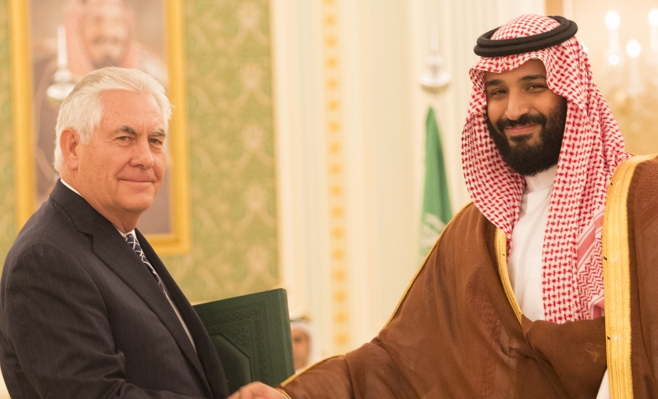Frenemies: The Secretive Saudi/Israeli Relationship

Throughout the history of international diplomacy and geopolitics, appearance and reality are quite divided. Often, countries use backdoor methods of diplomacy, shrouding negotiations and various forms of cooperation with ‘rival’ states in secrecy. The current situation in the Middle East is no different, particularly in relation to Israel. Western views of the region as overwhelmingly fractured is incorrect, and are growing more false every day. Though formally divided over many issues, most notably Palestine, Israel and the Gulf States–particularly Saudi Arabia–have secretly been in close contact for years, united by a common enemy: Iran. However, according to recent statements by an Israeli minister, publicly normalized relations (i.e. the establishment of diplomatic relations) could be on the horizon. How did this happen, and what does it mean for the future of the region?
With base level knowledge of Middle Eastern politics and an understanding of the cliché “the enemy of my enemy is my friend,” one might naturally assume this partnership was inevitable. In some regards, it was. For decades, Iran has been on a quest for control of the region and is, by many accounts, succeeding. Iranian opportunistic foreign policy has placed the state and state-affiliated actors at the epicentre of most current Middle Eastern conflicts – Syria, Yemen, Lebanon, etc. Rumours of a secret alliance have been swirling for years, with indications popping up sporadically. It was only a matter of time before a public Saudi-Israeli alliance appeared.
However, as advantageous as this collaboration could prove to be for both nations’ security interests, the establishment of an actual working relationship is hindered by the issue of Palestine. Both states have spent decades on opposing sides of the protracted conflict, and still formally view each other as ‘rivals’. Political culture within Saudi Arabia does not allow for a normalization of relations with Israel, at least until a satisfactory Israel/Palestine peace deal is brokered, which, in all likelihood, is a long way off.
Even if a satisfactory accord can be created, it would come to fruition much later than unchecked Iranian regional domination. What was once religious (Muslim) and ethnic (Arab) solidarity between Palestine and Saudi Arabia is now a tactical hurdle that must be cleared before the larger regional threat can be dealt with. If a peace deal isn’t reached before the establishment of overt diplomacy with Israel, Saudi Arabia appears to abandon Palestine and loses its credibility as the preeminent religious leader. Israel is hated amongst the general Arab population, so any indication that Saudi Arabia is acting counter to popular opinion could damage the new Saudi government, tarnishing progress they’ve made within the country as well as any future diplomatic efforts.
This convoluted intra/inter-national affair is the reason seemingly innocuous public revelations of diplomacy are in fact quite significant and calculated. The recent offers of intelligence exchange, public condemnation of attacks on Israel, visits to synagogues, and acknowledgments of contact are all carefully coordinated, intended to warn Iran of the developing relationship, while also laying the groundwork of a future relationship within Saudi society.

The timing of the new alliance is also of little surprise. To counter the growing threat of a dominant Iran, Saudi Arabia and Israel have historically turned to the United States, but current American strategy is lacking. Donald Trump and Jared Kushner, who was appointed a special advisor on the region, are adamant about countering Iran, but rhetoric doesn’t equate to action. It is obvious the administration is adrift, missing concrete policy on containing Iran. United States influence in the region, as in much of the world, is waning, and both Saudi Arabia and Israel are scrambling to fill the resultant power gap.
So, what does Israel’s transformation from natural pariah to natural partner mean for the region? Some believe it could be a harbinger of war between Saudi Arabia and Iran. Shoring up allies in the region could signal a drastic shift in an otherwise ‘cold’ conflict filled with degrees of separation and proxy wars. This is unlikely, as the Saudis have tried their hand at direct engagement in Yemen, where they are currently bogged down in a costly and defective military intervention. Direct war is a distant possibility, but that doesn’t mean hostilities won’t increase. Another possible scenario on the horizon is an additional proxy war, this time involving Hezbollah and Lebanon. This conflict would involve Israel directly, so an alliance between the state and Saudi Arabia would be a safe precursor before yet another costly war. This is also generally considered to be unlikely, as neither state is equipped for this scale of military involvement.
Before open relations and the successive wars they may or may not bring, Saudi Arabia and Israel must rectify the issue of Palestine, which has kept their diplomatic efforts relegated to closed rooms and back doors. Will the desire for a partnership drive a better deal for Palestinians, or will it force the state to accept an unfavourable deal or else risk losing its primary regional backers? The deal brokered by Kushner, which is currently driven forward by parties involved in mediating the conflict, is, as to be expected, more beneficial to the Israeli side. However, any developments in the peace process should be considered an improvement to the stagnant hostilities which have defined the past few years. Though Saudi involvement in the process undoubtedly feels coercive and self-serving, any genuine effort to rectify a situation previously considered hopeless should be seen as a step towards a possibly beneficial dynamic, with the potential to refresh a stale and protracted deal making process.
Unbeknownst to many, the Middle East is growing ever more unified. Israel and Saudi Arabia have set a course towards partnership, but many obstacles, both those which exist already and those which may come in the future, seek to hinder this increasingly likely alliance.
Edited by Phoebe Warren
